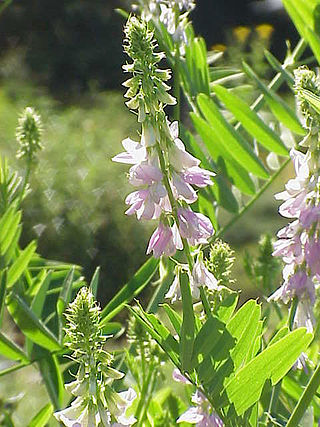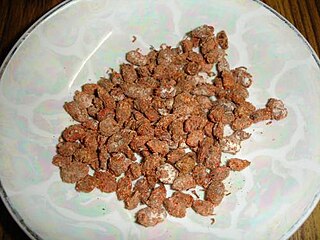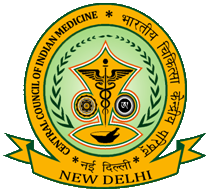Related Research Articles

Bioprospecting is the exploration of natural sources for small molecules, macromolecules and biochemical and genetic information that could be developed into commercially valuable products for the agricultural, aquaculture, bioremediation, cosmetics, nanotechnology, or pharmaceutical industries. In the pharmaceutical industry, for example, almost one third of all small-molecule drugs approved by the U.S. Food and Drug Administration (FDA) between 1981 and 2014 were either natural products or compounds derived from natural products.

Ayurveda is an alternative medicine system with historical roots in the Indian subcontinent. It is heavily practiced in India and Nepal, where around 80% of the population report using ayurveda. The theory and practice of ayurveda is pseudoscientific.
Prior art is a concept in patent law used to determine the patentability of an invention, in particular whether an invention meets the novelty and the inventive step or non-obviousness criteria for patentability. In most systems of patent law, prior art is generally defined as anything that is made available, or disclosed, to the public that might be relevant to a patent's claim before the effective filing date of a patent application for an invention. However, notable differences exist in how prior art is specifically defined under different national, regional, and international patent systems.
A patent attorney is an attorney who has the specialized qualifications necessary for representing clients in obtaining patents and acting in all matters and procedures relating to patent law and practice, such as filing patent applications and oppositions to granted patents.
A patent examiner is an employee, usually a civil servant with a scientific or engineering background, working at a patent office.

Unani or Yunani medicine is Perso-Arabic traditional medicine as practiced in Muslim culture in South Asia and modern day Central Asia. Unani medicine is pseudoscientific. The Indian Medical Association describes Unani practitioners who claim to practice medicine as quacks.
Traditional knowledge (TK), indigenous knowledge (IK), folk knowledge, and local knowledge generally refer to knowledge systems embedded in the cultural traditions of regional, indigenous, or local communities.

The Japan Patent Office is a Japanese governmental agency in charge of industrial property right affairs, under the Ministry of Economy, Trade and Industry. The Japan Patent Office is located in Kasumigaseki, Chiyoda, Tokyo and is one of the world's largest patent offices. The Japan Patent Office's mission is to promote the growth of the Japanese economy and industry by administering the laws relating to patents, utility models, designs, and trademarks. Copyright affairs are administered by the Agency for Cultural Affairs.
A patent classification is a system for examiners of patent offices or other people to categorize (code) documents, such as published patent applications, according to the technical features of their content. Patent classifications make it feasible to search quickly for documents about earlier disclosures similar to or related to the invention for which a patent is applied for, and to track technological trends in patent applications.
The Office of the Controller General of Patents, Designs and Trade Marks(CGPDTM) generally known as the Indian Patent Office, is an agency under the Department for Promotion of Industry and Internal Trade which administers the Indian law of Patents, Designs and Trade Marks.

Siddha medicine is a form of traditional medicine originating in southern India. It is one of the oldest systems of medicine in India.

The Ministry of Health and Family Welfare, also known by its abbreviation MoHFW, is an Indian government ministry charged with health policy in India. It is also responsible for all government programs relating to family planning in India.
The Patent Prosecution Highway (PPH) is a set of initiatives for providing accelerated patent prosecution procedures by sharing information between some patent offices. It also permits each participating patent office to benefit from the work previously done by the other patent office, with the goal of reducing examination workload and improving patent quality.
The Ministry of Ayush, a ministry of the Government of India, is responsible for developing education, research and propagation of traditional medicine and alternative medicine systems in India. Ayush is a name devised from the names of the alternative healthcare systems covered by the ministry: ayurveda, yoga & naturopathy, Unani, Siddha, Sowa Rigpa, and homeopathy.

Central Council of Indian Medicine (CCIM) was a statutory body under the Ministry of AYUSH, Government of India between 1971 and 2021. The CCIM was set up in 1971 under the Indian Medicine Central Council Act, which was passed in 1970. It is one of the Professional councils under University Grants Commission (UGC) to monitor higher education in Indian systems of medicine, including Ayurveda, Siddha, Unani and Sowa-Rigpa.
Thrissur Ayurveda cluster is an Ayurveda cluster situated in KINFRA Park in Koratty in Thrissur District. The cluster is meant for a comprehensive development of Kerala brand of Ayurvedic products and train the manufacturers of Ayurveda products on the importance of safety, quality and efficacy. The cluster have facilities for testing and analysis, process product validation, safety study and manufacture. The cluster is approved by the Department of Ayurveda, Yoga & Naturopathy, Unani, Siddha and Homoeopathy (AYUSH).

Central Research Institute of Unani Medicine or CRIUM Hyderabad, established in December 1971, is an Indian Government-sponsored Unani medicine research center and out-patient clinic located in Hyderabad, India. The institute was upgraded to National Research Institute of Unani Medicine for Skin Disorders (NRIUMSD), by Shripad Naik, Minister of State (IC) for AYUSH in November 2019. The Institute is well known for its successful treatment in the skin condition of vitiligo, treating more than 150,000 patients.
Vaidya Balendu Prakash is an Indian Ayurveda practitioner. He is a former physician to the President of India and the founder of Paadav, a specialty Ayurvedic hospital in Dehradun. The Government of India awarded him the fourth highest civilian award of the Padma Shri in 1999.
Paneenazhikath Narayana Vasudeva Kurup was an Indian Ayurvedic practitioner, researcher, writer and the founder director of the Central Council for Research in Homoeopathy (CCRIMH). He is a former vice chancellor of the Gujarat Ayurved University, Jamnagar and a former advisor of the Indian Systems of Medicine and Homoeopathy (ISM&H) of the Ministry of Health and Family Welfare. He has published several articles and a book, A Handbook on Indian Medicinal Plants, on the traditional Indian medicine system, The Government of India awarded him the fourth highest civilian honour of the Padma Shri, in 2005, for his contributions to Indian medicine.

Biopiracy is the unauthorized appropriation of knowledge and genetic resources of farming and indigenous communities by individuals or institutions seeking exclusive monopoly control through patents or intellectual property. While bioprospecting is the act of exploring natural resources for undiscovered chemical compounds with medicinal or anti-microbial properties, commercial success from bioprospecting leads to the company's attempt at protecting their intellectual property rights on indigenous medicinal plants, seeds, genetic resources, and traditional medicines.
References
- ↑ Sengupta, Nirmal (2007). Economic Studies of Indigenous and Traditional Knowledge. Academic Foundation. ISBN 978-81-7188-586-2.
- ↑ Dutz, Mark (2007-10-15). Unleashing India's Innovation: Toward Sustainable and Inclusive Growth. World Bank Publications. ISBN 978-0-8213-7198-5.
- 1 2 3 "Know Instances of Patenting on the UES of Medicinal Plants in India". PIB, Ministry of Environment and Forests. May 6, 2010.
- ↑ "CSIR chief stress on non-patent literature database". Business Line. September 23, 2000.
- ↑ Sengupta, p. 187
- 1 2 "About TKDL". TKDL website.
- 1 2 "CSIR wing objects to Avesthagen patent claim". Live Mint. Apr 28, 2010.
- 1 2 3 "India Partners with US and UK to Protect Its Traditional Knowledge and Prevent Bio-Piracy". Press Information Bureau, Ministry of Health and Family Welfare. April 28, 2010. Retrieved 25 May 2010.
- ↑ Dutz, p. 14
- ↑ Alikhan, p. 85
- ↑ "Free access to traditional knowledge library". Financial Express. Jul 14, 2006.
- ↑ "Patents offices given access to TK library". Financial Express. Jun 30, 2006.
- ↑ "India documents traditional formulations, yoga postures". The Hindu. January 4, 2010.
- 1 2 "India's Traditional Knowledge Digital Library (TKDL): A powerful tool for patent examiners". European Patent Office (EPO). 2009-02-24. Archived from the original on 2010-02-17.
- ↑ Cheng, Wenting (2023). China in Global Governance of Intellectual Property: Implications for Global Distributive Justice. Palgrave Socio-Legal Studies series. Palgrave Macmillan. ISBN 978-3-031-24369-1.
- ↑ "Indian Government in Knots Over U.S. Yoga Patents". ABC News. May 22, 2007.
- ↑ "GRANT OF PATENTS ON YOGA BY UNITED STATES PATENT AND TRADEMARK OFFICE – THE FACTUAL POSITION". PIB, Ministry of Commerce & Industry. June 13, 2007.
- ↑ Nelson, Dean (23 Feb 2009). "India moves to patent yoga poses in bid to protect traditional knowledge". The Telegraph. London.
- ↑ "India favours pact for benefit sharing of bio-resources". Business Standard. May 22, 2010.
- ↑ "Biodiversity study with replay whiff". The Telegraph. January 5, 2010. Archived from the original on January 7, 2010.